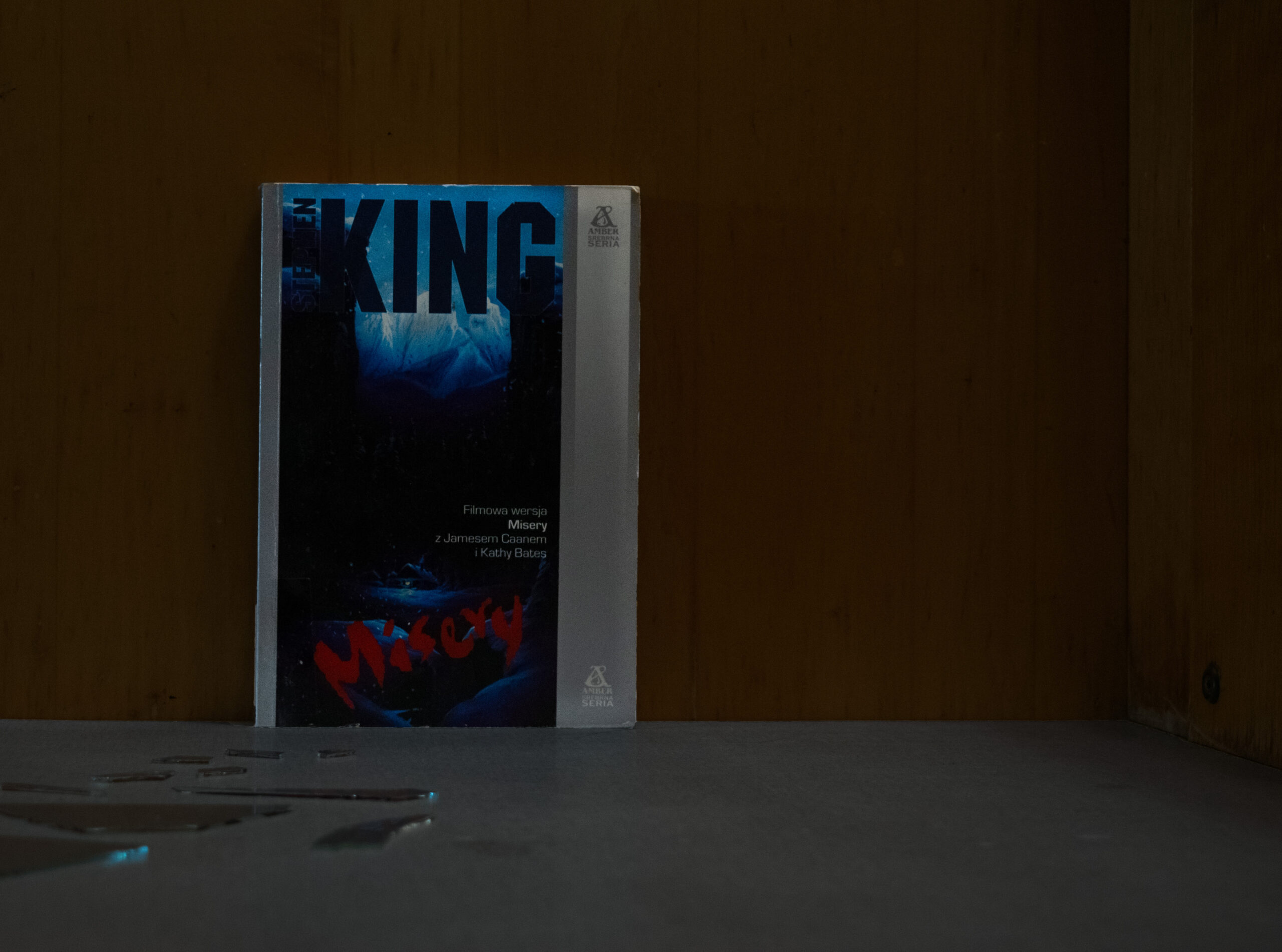By the time “Misery” came out, Stephen King was a certified superstar in the horror genre. He was known for scary stories with fantastical elements: Child-eating clowns, vampires, haunted hotels and evil cars. But with his seventeenth novel, Stephen King tried out something different… a crazy nurse.
“Misery,” is a psychological horror that follows author Paul Sheldon while he is being rehabilitated by his number one fan, and disgraced nurse, Annie Wilkes.
The majority of the story takes place in Annie’s remote Colorado home after Paul is “saved” from a horrific car accident.
Paul quickly realizes she is not his saving grace, but a crazy, blood-thirsty woman, who will torture him, unless he produces a personalized novel for her.
This book is often considered in the upper echelon of King’s literary canon, and I agree.
“Misery” does not suffer from the famous “slow start” King books are known to have. He pulls you into the story, with the very first scene. The introductory crash is also where the prose of King is at some of its strongest.
For critics of King’s prose, calling it too long and meandering, “Misery” would be a preferable choice. His writing is vivid and enticing, while not being so long that it drags sentences like a Dickens novel. It’s also quite brief for a King novel, comes in around 350-375 pages, depending on the copy.
I think in this narrative King really shows his audience the versatility of the type of horror he can write. This book has no fantastical elements and most of it takes place in a single room, yet despite this, it is as creepy and thrilling as anything King has written.
One of the major soft spots this novel has is the protagonist Paul Sheldon. He is not a terrible character, but is sadly one-dimensional. He doesn’t have a lot of backstory or exploration, and other than the fact you feel bad for his predicament, you don’t feel much else for the character.
That doesn’t bring down this story too much, because the real star of the show has everything Paul doesn’t. And that star is named Annie Wilkes.
Annie is one of King’s best villains. You can feel her eeriness as soon as she appears on the page. King does a great job of giving Annie depth and making her realistic. Out of all of the villains and creatures that exist in the Mainer’s universe, Annie is one of the few that can exist. That fact makes this story even scarier.
Another great thing about Annie is the fact there’s no attempt to make her be redeemable or draw sympathy from the reader. Sometimes I like my villains to just be villains.
I’m not a person who gets scared by books often, but there is one scene that involves Annie and a rat that made my whole body tense.
The themes are a very interesting part of the story. “Misery” is discussing pain — both the pain caused by others and the pain we carry with us every day. It also focuses on how long we can tolerate that pain and where our breaking point is.
Another theme is the relationship between the artist and the audience. Throughout the story, there is this motif King keeps coming back to; an exotic bird on display.
I interpret that to represent how artists might feel when audiences judge their work. To feel like you’re just an exotic being to people who read your work. The cage or glass you’re kept in represents how the audience can put the artist in a box, when they expect a certain thing.
Paul has a novel called “Fast Cars,” that he talks about throughout the narrative. He laments that while it might not sell as well as the rest of his novels, it is the best thing he has ever written. It will win him an award and it might be the only real thing he’s ever written. The rest of his books are slop compared to it.
Annie (his number one fan) makes him burn it because “it’s not him” and “it’s filth.” Instead, he should write a new entry into her favorite series. I think this a straightforward metaphor for the effect the audience can have on what an author writes and how they write it. If you don’t conform, the book won’t sell, no matter how much the creator thinks it should.
King also gives the relationship nuance. Paul talks about the love he has for the attention he gets from his books and in a literal sense, Paul needs Annie to survive; the drugs she gives him is his salvation. That can be read in many symbolic ways.
With spooky season being upon us, I personally recommend that “Misery” should be one of your reads this fall.
I give it a 3.7 out of 5 stars















